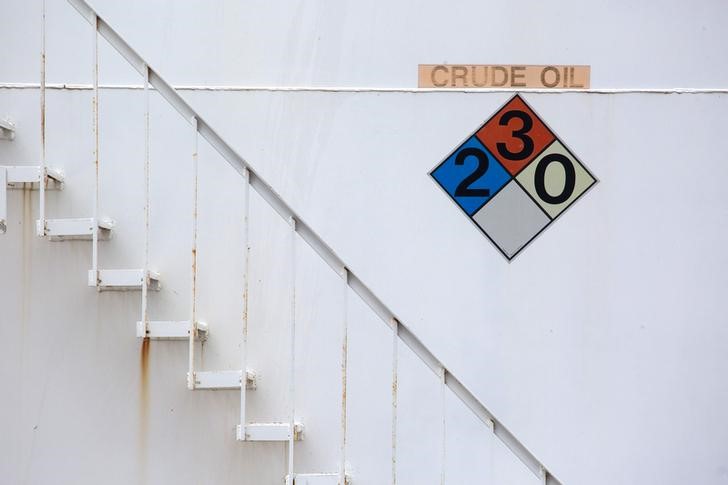Investing.com - Crude prices extended robust gains on Wednesday, hitting fresh three-and-a-half-year highs after data showed that U.S. oil stockpiles fell much more than expected last week.
New York-traded WTI crude futures surged $2.03, or 2.9%, to $71.09 a barrel by 10:35AM ET (1435GMT). Prices were at around $70.94 prior to the release of the inventory data.
The U.S. benchmark touched a high of $71.28 earlier, a level not seen since November 2014.
Meanwhile, Brent crude futures, the benchmark for oil prices outside the U.S., jumped $2.40, or around 3.2%, to $77.25 a barrel, after climbing to $77.42 earlier in the session, also close to highs last seen in late 2014.
The U.S. Energy Information Administration said in its weekly report that crude oil inventories fell by 2.2 million barrels in the week ended May 4.
That compared with analysts' expectations for a decline of 200,000 barrels, while the American Petroleum Institute late Tuesday reported a supply-drop of 1.9 million barrels.
Total U.S. crude oil inventories stood at 433.8 million barrels as of last week, which the EIA considered to be in the lower half of the average range for this time of year.
Domestic oil production- driven by shale extraction - rose to a fresh all-time high of 10.70 million barrels per day last week. Only Russia currently produces more, at around 11 million bpd.
The report also showed that gasoline inventories decreased by 2.2 million barrels, compared to expectations for a decline of 450,000 barrels. For distillate inventories including diesel, the EIA reported a drop of 3.8 million barrels.
Oil prices were already on the front foot after U.S. President Donald Trump walked away from an international nuclear deal with Iran on Tuesday, raising the risk of conflict in the Middle East and casting uncertainty over global oil supplies.
Some analysts have said the reinstatement of sanctions could lead to tighter global oil supplies as they make it more difficult for Iran to export oil.
Iran, which is a major Middle East oil producer and member of the Organization of the Petroleum Exporting Countries (OPEC), resumed its role as a major oil exporter in January 2016 when international sanctions against Tehran were lifted in return for curbs on Iran\'s nuclear program.
